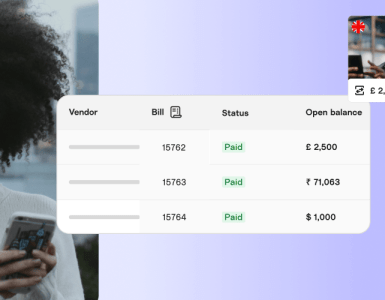
Although it might feel like it right now, this COVID-19 crisis thankfully won’t go on forever. Post covid-19 life is a topic that many freelancers, clients, and professionals around the world are hesitant about.
What separates the successors from the rest? Preparation.
Millions of companies have been forced to embrace remote working, creating all sorts of opportunities. If you’re prepared to stand out from the competition, you’ll have the chance to grab them.
In this article, we’re going to look at the tips we’ve been sent from our global freelance community about how to prepare for life after post COVID-19.
This article is part of the guide Remote Working during COVID-19, How to ride out the coronavirus outbreak.
Change your mindset

Getting yourself in the right headspace will be key to making the most opportunities post-COVID-19. Here are some tips to give you a head start on your competition:
- Whilst everyone else is on the defence, get on the offence. Your flexibility is your power: be adaptable and try to be a resource for your clients. Show them how they can tighten their belts and be efficient and they will thank you with more opportunities!
- Understand that even as the pandemic subsides, there will be long-term ramifications financially and culturally. Start developing new skills now.
- Be generous with your knowledge – share tips and tricks that help. You never know who may benefit from your advice.
- The remote working culture is likely flourish after the crisis. List out the supply and demand bottlenecks now, and find solutions for them.
- Make use of the efficient practices you have developed during isolation.
- Be aware of others needs, both in your personal and professional communities. You never know when you might need them!
- Re-fresh your portfolio – what projects have you worked lately that really show off your skills?
- Utilize mobile applications that allow you to grow your network. Many language apps have the option to interact with people from around the world, allowing you to communicate with all sorts of people. You can explore different cultures, learn about what impact this is having on lives internationally, and how people prefer to conduct business. This is a good training method for working in the age of globalization.
- Be consistent, there will be a lot of people seeking work.
- Be optimistic and enthusiastic. Make sure you are continually questioning yourself on what you truly you want to do in life. Cultivate a curiosity of “Why” regarding your decisions (e.g. Why do I want to do what I want to do?)
- Write a diary to put things into perspective. Remember these difficult times, and remeber they will pass.
Leverage Opportunities

- Prepare to weather the storm now and ready yourself, or team, for a push. As long as you are leveraging technology now to remain afloat, you will be even better in the other side.
- Look for the many gear and computer deals happening now. Upgrading, or getting the new piece of tech you may need, is the best way to combat the storm. Make sure you have your creative software solutions ready and paid for. Make sure any files you had to work on, in a non-mainstream software, will be converted back for use in the native software. Email clients that you may have a backlog due to this event.
- Many freelancers are already doing a lot (or all) of their business online. However, if you’re a freelancer who has tended to work with more in-person clients, or who relies on in-person networking events, start acclimating yourself to all the digital tools at your disposal. Find online job boards and networking communities that are relevant to your field. Look into digital business card apps. Make sure you have a website that’s up and running!
Workflow

- Maintaining good communication with your clients as the competition to find a job increases. Holding on to the people you already work with is a great strategy to ensure success.
- Think of how you can offer your services or products in a creative and virtual format. How can you diversify what you offer so that you don’t rely on just one or two revenue streams?
- Be efficient with costs: what expenses are unnecessary? Staying lean and mean keeps you flexible and resilient post-Covid-19.
- Save as much money as you go. Cut operational costs, store completed and in progress files within a cloud, so they’re accessible by clients at any time, anywhere in the world.
- Obviously, the economy will take a huge hit from this. In preparation for this, it is good to look far ahead. Start preparing (about a year in advance) for opportunities to freelance. Documenting your personal productivity, during the period you’re in remote work, will allow you to see what works for you. Then, begin implementing those strategies, making you more efficient and valuable to companies later on.
- Be prepared for an increase in new processes and backed up work load.
- Don’t make drastic and unsustainable changes to your workflow. Be flexible, but don’t try to overhaul your whole routine. The world will get back to normal soon.
- Studies have proven that remote working is here to stay. Take this opportunity to get good at it! There are lots of positives to remote working: no travel time to work, ability to work from wherever you are, etc…
- Check your work contracts in case of potential delays, and check longer term deadlines to ensure they will be reached. You should also start to build lists of potential clients, post Covid-19, so you can be first to contact them.
Finances

- Figure out a sustainable lifestyle budget to carry you through any potential recession. Project the # of hrs needed to work to meet that budget, and factor in 30-90 day payment on invoices.
- Work on a savings fund, so you’re able to go without work for 6 months to a year, in case of any crisis.
- Take stock of your transferrable professional strengths, in case you need to shift your area of focus.
- Cut back on unnecessary expenses – but, don’t be afraid to invest in a tool or software that could give you an edge later.
- If you can, put extra money into savings, in case you take an income hit. You could also consider giving something to support those who are less fortunate post-Covid-19.
Technology

- If you are a visual creative – i.e. a graphic/web designer, illustrator, etc – try to make sure you you’re at the cutting edge in terms of hardware and software. Ensure your devices are reliable, and applications do any task you need. It might mean spending money, but it is essential to be well equipped and updated where possible.
- Make sure you’re fully aware of the online tools at your disposal. There are plenty of platforms that allow you to search for remote work, track payments and project progress post-Covid-19.
Marketing

- Contact all your clients to let them know whether you’re still available. There’s potential for new clients, if their reliable freelancers are on break!
- If you don’t have as much work, it’s time to do all those marketing activities that you’ve put off! Update your website, add new portfolio pieces, improve your copy, create a new social media page, blog, podcast etc.
- Schedule a few months of social media posts in advance. Your clients and customers will be thankful you’re keeping them in the loop, and haven’t completely dropped off. You could also get an email outreach campaign ready if your client-base is paticularly vast.
- Strengthen your online presence, and help others. Sharing work recommendations with other lesser known freelancers will boost your value, and solidify the authenticity of your network.
- Document your journey. Don’t shy away from what you’ve learnt!
- Keep social media engagement active, ensuring you’re interacting with clients (and potential clients) during the crisis. Resonating with how people are feeling during this trying period will allow a bond to be built.
- Now more than ever customer relationships are vital, so go above and beyond for your clients. This way, you’re more likely to get referrals.
- Get promoting and meeting people again – be it digitally or in-person.
Organisation

You have a lot of time to think over your freelance business right now, but all of these exciting ideas floating around in your mind are worthless if you don’t come up with strategies to implement them. Here are some tips to sharpen your processes to make sure you come out on top post-COVID-19.
- Whilst you’re experimenting with remote working, take notes on what works for you and what doesn’t. Once you have your rhythm set, you’ll be able to continue on in the future. You’ll also be able to educate clients on your process to assure them that you are a pro at working from home.
- Be aware that no matter the situation, communicating regularly and effectively are important qualities to possess. You will have to be self-generating and flexible, whether that’s in terms of your schedule or learning new tools quickly. Those abilities will translate effectively into any position.
- Engage with your clients, and ask about their contingency and continuity plans. This way, you can figure out if they’re likely to work with you in the long term.
- When you’re off the clock, give yourself permission to have time off. Just because you’ve had to bring your work home doesn’t mean it has to preoccupy your mind!
- Focus on creating real value. There are lots of people and companies who need your expertise to build and/or rebuild.
- Prepare a plan of action that is sustainable for both you and your clients. It is important to set work boundaries and hours of available contact early on in your transition of remote working. Often, people will think that you are available for other activities during work hours, and this can be problematic.
Education

Use your time in isolation wisely. We all have many dimensions we can improve in, and we’re incredibly lucky to have resources at our disposal. Here are some tips for up-skilling yourself to massively increase your value post-COVID-19:
- Try to figure what makes you more productive when you’re working remotely. This could be certain times of day, physical space, frequency of breaks, etc.
- Hone your skills – personal time management, client communications, invoicing, contracting, sharing and collaboration are all vital skills for professional freelancers.
- Don’t be afraid to upskill. Look at your skills and analyze how you can enhance them so you have more to offer. Open source software and free tutorials on YouTube are great places to start. Then, you can move forward onto more expert level knowledge. You can also brush up on your business knowledge for free online, such as by reviewing this useful site of small business resources.
- If remote working is a new experience for you, then be optimistic! There’s a freedom and a sense of confinement that comes from working at home. Try to focus on the former.
- Keep all of your networking connections. You never know when you might run into them again.
- Look for mentors working remotely in the same sectors as you. Many people who have been doing this for years are happy to meet for a video call or to chat. After all, they’re promoting upward mobility for those who do not have the same resources available to them socially or financially.
- Look at post-Covid-19 as an opportunity to grow. More companies will look to create remote teams, and being able to deal with a stressful situation like the pandemic proves your value as a remote worker – so be proud of that.
We got this information out as quickly as possible and will be updating it over the coming days and weeks. If you have any other tools you want to add, please comment below or contribute to the cause and give your advice on remote working.
Ready to get hired? At Twine, we have dozens of top-quality jobs being posted each and every day. From design to marketing, development to copywriting – there’s a job ready for your skills. Join the marketplace of diverse creative talent here.



